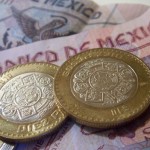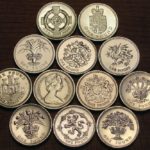Gold edged up for a third session on Monday before the meeting of Europe’s finance ministers in Brussels who are set to discuss the financial future of Greece. Silver and platinum gained as well, while palladium dropped. Copper dipped in thin trading as Japans economy expanded less than expected last quarter.
Comex gold for delivery in April was up 0.56% at $1 234.0 per troy ounce at 11:45 GMT, shifting in a daily range of $1 236.7-$1 227.0. The precious metal edged up 0.52% on Friday to $1 227.1.
Greece’s Finance Minister Yanis Varoufakis will resume talks with his European counterparts, following failed negotiations last week, later on Monday.
Officials are to reach an agreement on the funding of Europe’s most indebted country as its current bailout deal expires in the end of the month, after Europe agreed in December to extend the deal by two more months.
Greece is asking for a six-month bridge agreement in order to buy more time to reach a new bailout deal. The new government, which was elected on a promise to substantially reduce Greece’s debt and lift austerity measures, proposed earlier this month to swap its current debt with new growth-linked bonds.
However, creditors are insisting that the administration, led by Prime Minister Alexis Tsipras, must respect the terms of the deal inked by Greece’s previous government.
Gold benefits from political instability as investors seek shelter amid the possibility of Greece leaving the Eurozone, if an agreement is not reached.
“Concerns about Greece’s negotiations with its lenders should continue to support a safe-haven bid for gold,” said Victor Thianpiriya, an analyst with ANZ, cited by CNBC.
The yellow metal was also boosted by the recent weakness in the dollar, spurred by a series of disappointing US data, the latest of which came in on Friday. Despite robust job gains during the last three months, US consumer sentiment dropped from an 11-year high.
According to the University of Michigan, the preliminary consumer sentiment index slid to 93.6 in February from 98.1 in January, defying projections to have remained unchanged.
Overall, traders remained cautious as the prospects of an increase in interest rates by the Federal Reserve weigh in favor of selling the yellow metal.
US officials are set to raise borrowing costs, which have been kept near zero levels since 2008, by June this year. However, policy makers are concerned with the plunge of oil prices, which has helped keep inflation in the US below Fed’s target of 2%.
The US dollar index for settlement in March was down 0.17% at 94.115 at 11:46 GMT, holding in a daily range of 94.245-93.970. The US currency gauge gained 0.09% on Friday to 94.279. A weaker greenback makes dollar-denominated commodities cheaper for holders of foreign currencies and boosts their appeal as an alternative investment.
Assets in the SPDR Gold Trust, the biggest bullion-backed ETF, fell 3.25 tons on Friday to 768.26 tons. Changes in holdings typically move gold prices in the same direction.
Copper
Comex copper for delivery in March traded 0.25% lower at 11:50 GMT at $2.5985, having shifted in a daily range of $2.6230-$2.5870. The contract added 0.12% on Friday to settle at $2.6050.
Japan emerged from a recession in the fourth quarter of 2014, preliminary data showed, but the expansion trailed analysts forecasts as household and corporate spending disappointed. Annual GDP growth came in at 2.2%, undershooting forecasts for 3.7%. The third quarter’s reading received a downward revision to show a contraction of 2.3%.
Easing consumer confidence in the US also helped push the industrial metal lower, although a resulting softness in the dollar eased pressure on dollar-denominated commodities. Investors were wary ahead of talks on Greeces bailout program later today, while trading volumes remained thin ahead of the Chinese Lunar New Year holiday. The US celebrates the Presidents Day holiday today.
Meanwhile, CNBC reported, citing policy insiders, that Chinese authorities will take further measures to ensure economic growth of about 7% in 2015, including cutting interest rates, boosting liquidity and tolerating some currency weakness. The Peoples Bank of China recently reduced the minimum reserve requirements for banks by 1% after it cut interest rates in late 2014 for the first time in over two years.





